David Baker
SOUND ENGINEER
October 12, 1945 (Mt. Vernon, NY) - July 14, 2004 (Rochester, NY)
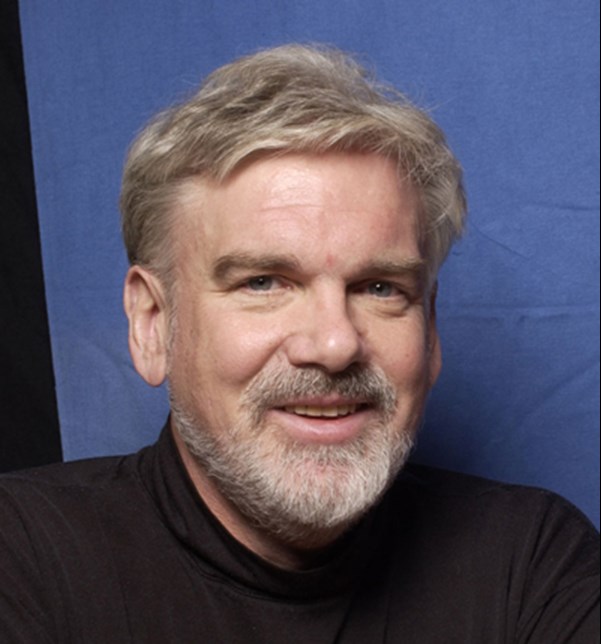
photo © John Abbott
Remembering David Baker by Lauri Shaw (The New York Sun, Aug 2, 2004)
Often in business, we know people exclusively by their work, and the music business is of course no different. He did indeed create an impressive discography in his lifetime. Beyond his phenomenal work, he was a unique person who likely touched in some way the lives of everyone he came across. David was an acquaintance of mine who behaved like a friend, and his sudden, untimely death came as quite a shock to me. Originally I was going to interview him about his extensive live recordings with jazz giants, and his place in the history of recording. We had a date set for the interview. I was very excited about some of the things he might say, because David was anything but predictable - he was irreverent in places everyone else I knew might tiptoe about. Conversations with him were a lot of fun. It was the day before we were supposed to meet, and I had not heard from David in over a week, which wasn't like him. Then I got the phone call. A mutual friend informed me that he had passed away five days prior. After I got through crying, I realized that as hard as it was going to be, I still needed to say a few things about him. Perhaps because I saw a side of him rarely seen by a lot of other industry professionals. David was only 58 years old. I know the number because I was with him on what wound up being his last birthday. He spent it at the AES convention, helping run the panel discussions for the AES Historical Committee. David was a very active and devoted member of the audio community, and he often donated his time to organizations that deal with the history of recording.
Dan Gaydos, a curator of the Museum of Sound Recording, had this to say:
"I outright cried when I learned. He was so beautiful. He really helped with the Museum a lot, in spirit and in action. He contributed many of his prized pieces - some that he used a lot for his own location recordings: portable Nakamichi cassette recorder, the Sony TC-D5 cassette recorder, the first Sony DAT recorder, straight from Japan, the first Norelco Phillips cassette recorder, which was portable. But the most endearing thing I'll always remember about him was his ability to be humored by it all, his elevating honesty and his willingness to be madcap and colorful in a world that sometimes takes itself too seriously. He was a loving person, very other-centered, considering the efforts and the achievements of others before ever mentioning his own stellar dedication and contributions. My words are just a tiny bit of my regard for him."
John Kilgore of midtown Manhattan's Masque Sound said:
"I first met David Baker at Apostolic Studios in 1967. I was a young apprentice, and David, although only three years older, was a fully formed engineer, with years of experience under his belt. Both of us discovered our love of recording at the age of ten, but David began living it at that moment, and never stopped until a few hours before his death.. He was a lifelong friend, and a great teacher. He was always generous with his knowledge and passed it on to me effortlessly, so that offhand remarks, I realized many years later, were foundation touchstones of my understanding of the art of recording. After my apprenticeship at Apostolic, I finished college, and when I graduated, it was David who got me my job at Vanguard Records. After two years at Vanguard, I became the chief engineer at Desmar Records, another job David put me up for.
We worked together on many projects throughout the years. Some of my favorites are: the hillariously difficult assembly of "Peter and the Wolf" with Will Geer that had both of us tearing our hair out, mixing the Mahler Symphonies and the Brandenburg Concerti with Seymour Solomon and doing a WRVR radio broadcast of Dexter Gordon live at the Village Vanguard on New Year's Eve.
David was a very funny man, and had a wonderful ability to follow his fellow human beings' groove, riffing and making astonishing associations until the room was filled with laughter. He was a gentle soul, but the two things that provoked his ire were poorly maintained recording equipment and sloppy engineering practice. He demanded the best from himself and expected it from others. His death is a great loss to the profession and to me personally. We will miss him."
David Baker was, above all else, a man with class. In one of his last e-mails to me, he responded to one of my articles by saying, "Wow. If I could write like that, I'd have a real job." Verve Records had just put out his recording of the Scofield Trio (En Route). Many outstanding audio engineers are preceded by their reputations for being difficult clients. They have high standards and are therefore hard to please. David was not an exception in this case; I've heard people swear that he once pegged a mic case at some unfortunate assistant's head. I'm not sure what to think about that. I never saw him treat anyone badly. Indeed, he was hardly a saint. He loved a challenging debate, and he had a very low tolerance for anyone he thought wasn't entirely forthcoming with the truth - he would toss out leading comments designed to make people twitch with discomfort if he thought that they might be liars or hypocrites. He seemed to enjoy nailing this type of person, as if it were a form of sport or high art. But I don't believe he was ever malicious. I watched him go after people that I respected, and it usually looked like it was relatively tongue-in-cheek stuff. The David I knew seemed to have a soft spot for the underdog. He cared more of what he thought of people than what they thought of him. His principles came first.
His eyes gleamed when he told me about his work with the Civil Rights movement. "That was Atlanta in the mid-sixties, you know," he said proudly. "They tried to run us out of town a bunch of times. They chased us with burning crosses." He also didn't approve of the way women are sometimes treated in audio, or the industry types who would hold someone back just because she is female. He and I discussed this at length a few times, and it sounded legitimate to me on his part. Some people will say these things to win points with you. Since David didn't care if he offended anyone, I believed him when he stuck up for people who were marginalized. I saw it for myself once. I will not, now or ever, complain about tough breaks that come from being a woman in a field that is so heavily male-dominated, or about having to play the game in this precarious boys' club. In audio you have to be good at what you do with no excuses, and that principle holds true whether you are male or female. However, I won't sugarcoat the reality of the situation either. If you are a woman, then at every turn there is always some low-class individual who will try to use an unequal situation to his advantage when you are new somewhere, young, or otherwise not well established and attempting to climb the ladder next to the boys. At the networking parties that happen after the AES convention, it can get pretty crude. One of the engineers, upon learning that I had just moved to California, asked me whether I minded being groped. "Well, I came to AES..." I quipped. But it wasn't really a joke.
David knew that I was at AES to write up the show, as well as to maximize and solidify some of my contacts. He dutifully told me which parties to attend, and he personally escorted me to the convention's official cocktail party at the Marriott Marquis Hotel. David was well respected and a lot of people wanted to schmooze him, yet he made sure to include me, making sure that everyone who shook his hand also shook mine. The night before, I had been out with a group of people. One of these prominent engineers (who will go nameless, in tune with my philosophy that poor behavior should never be rewarded by granting someone notoriety) had been disrespectful (and alarmingly strange). When this engineer spotted David on the sidewalk next to the Lakeside Lounge, he crowed like a true fan, "David Baker! I was your assistant twenty years ago! I can't believe it's you!" David nodded and asked him whether he had met me. The engineer's shenanigans from the night prior were absolutely non existent after this interlude. For that weekend, David effectively protected me from would-be detractors. He did it with a certain subtlety, which allowed me to maintain my own dignity. Very few people can muster this approach; fewer still will bother to do so for another person.
When I think of David Baker, I think of piercing blue eyes that always had a twinkle in them. I think of an acerbic wit that never missed its mark. I think of a man who loved life and laughter - who adored his work as well as many of the people he worked with. I think of a person who was humble when he didn't have to be. He was never too busy to be friendly, but he wouldn't give you the time of day if he thought that anything about you was inauthentic. He was a rare individual with quirks that bespeak some of humanity's most extreme ones. He was very kind to me, and I still can't believe that I will never get to see him or talk to him again."
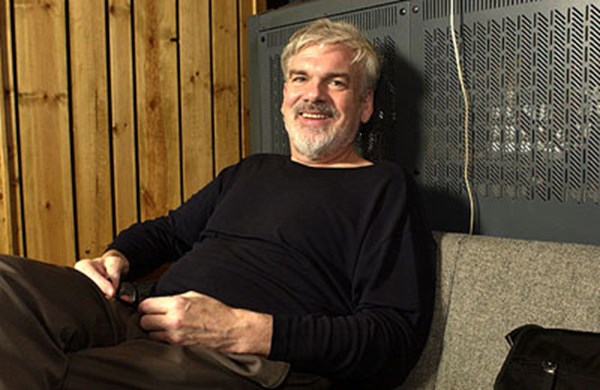
photo © John Abbott
"The great recording engineer/ producer David Baker has passed on ... left the planet. This comes as a total shock to all who knew him. He died peacefully in his sleep after finishing a recording date in Rochester, NY, July 14, 2004. He has contributed to many prestigious audio recordings for many record labels and independent artists. He is survived by his wife Kyoko Baker. We will miss him and thank him for his great work and contribution to high quality music recordings and as a friend."
- illy B (July 14, 2004)
It has become commonplace in obituaries to call almost any prominent person "legendary," but David Baker truly earned the sobriquet. Take all the somewhat extended loft jazz jams of the '70s and '80s and add them up. Then, add onto that some extended recording sessions by Parliament, George Clinton, and other P-Funk spin-offs. Add onto that all the hours that the Moody Blues spent in the recording studio putting together their series of masterpieces, cheesy and profound. David Baker also served as assistant engineer on the seminal rock recordings Every Good Boy Deserves Favor by the Moody Blues and In the Land of Grey and Pink by Caravan. Some may be turning grey already at the prospect of the time accumulated so far, but this isn't over. Now, factor in many live recording sessions that have taken place at clubs in New York City, usually stretched over six hours per night times three or four nights in a stretch. Adding all this up, or simply looking at all his recording credits, the obvious question is whether David Baker had time left to exist outside the recording studio.
The man who is said to have worked on more than 2,000 recording sessions, including many now considered classics for both sound and content, came from a family that was knee-deep in the music business. His qualifications practically start before his birth, in 1945, through his grandfather who was a salesman for Columbia Records in the late twenties. He was the son of the late Harry Alexander Baker and the late Viola Tenore Baker. At age six, David's father established Baker Audio in Atlanta, GA. David grew up around this business and assisted in installing large hi-fi systems with his father. Baker Audio eventually housed an AM/FM radio station and became known as the "House That Music Built". This environment can be credited for sparking Baker's interest in engineering as he began making amateur recordings of everything from B Minor Mass to Jazz Big Bands and editing tapes at the radio station. According to his sister, Karen Hartrampf, David made his first serious recording when he was 10 or 11, of Elvis Presley singing on "The Ed Sullivan Show" in 1956. The recording was made with a handheld microphone on an antiquated wire recorder. "We played it and played it and played it, and it broke, but it was a pretty good recording for those days," Ms. Hartrampf recalled. Later that year, his parents were killed in an automobile accident, and David and his four sisters were raised by relatives. Not too long after, Baker began coordinating sound for the Atlanta Arts Festival, which required operating all stage audio and preparing over sixteen hours of music per year.
In 1965, at the age of twenty, he headed out to work on his biggest undertaking at that point in his career. The Civil Rights movement was gaining strong momentum at that time in history, and Baker was recommended for some recording work that was needed. He headed to the Mississippi Delta and began doing a number of field recordings ranging from registration drives to church hall meetings. According to David, "The Civil Rights Movement had a profound influence on my life in musical engineering." The final product of these field recordings became the important Movement Soul album, which was re-issued early July 2004 on CD by the Library of Congress. "People are getting beat up, and they can't vote," David Baker said on NPR on July 2, 2004. "The church became the place to talk about it."
It was now 1967, the "Summer of Love", and the jazz scene was in the middle of a major metamorphosis that would change the history of the genre. David Baker knocked on the door of Apostolic Studios in New York City; at the time it was home to Frank Zappa and the Mothers of Invention. David stated that he knew right away this was the place for him. He recorded some of the early projects of the Fugs as well as the later country & western masterwork of Ed Sanders, Sanders' Truckstop. After years of experience, David also began formal training at The Royal Conservatory of Music in Toronto during the summer of '67 and The Institute of Audio Research in NYC during the fall. He remained at Apostolic, as Chief Engineer, until they closed their doors in 1970. It was during this time he made the Spaces album with John McLaughlin and Larry Coryell.
With Apostolic closed, David Baker headed to Portland on the advice of a friend. He quickly became indifferent to the scene in the Northwest and returned to New York City within six months. He now found himself working as the Chief Engineer for No Soap Radio, a small advertising agency in the Village, producing radio jingles.
In 1973, David Baker knocked on the door of Vanguard Records. He became their Chief Engineer, where he remained until 1975 to pursue an independent career. At this point a strong connection between Baker and Japan became established. He had met engineer Yoshihiro Suzuki and began working on projects for the Phillips/Eastwind label. His connection with Suzuki and producer Yasohachi Itoh is still a strong working relationship today at Sony Records.
David Baker remained primarily a free-lance engineer until 1986 when he began the undertaking of re-mastering the entire Vanguard Classics catalog for CD re-release. He has worked for ECM, Enja, Blue Note, Atlantic, Sony, Verve, Black Saint, Soul Note, Jazz'halo and Amulet (David Baker's releases on Amulet include Pitamaha, Bamboo Rainsticks, Bittersuite in the Ozone, Love Animal, Black Elk Speaks, The Turntable Sessions, and For No One In Particular) ... just to name a few.
With combined project sales well into the millions, David Baker has no intentions of slowing down. "Record production quality at the source remains my primary goal," he says. This statement is quite evident on his newest project Pitamaha: Music from Bali, which sounds more like a studio recording than a field recording. He has so many accomplishments that they could not all be listed. His long-term relationship with Shirley Horn recording for Verve has earned a Grammy (in 1998 for his work on the recording "I Remember Miles."), and to date he has travelled the world over in the line of duty.
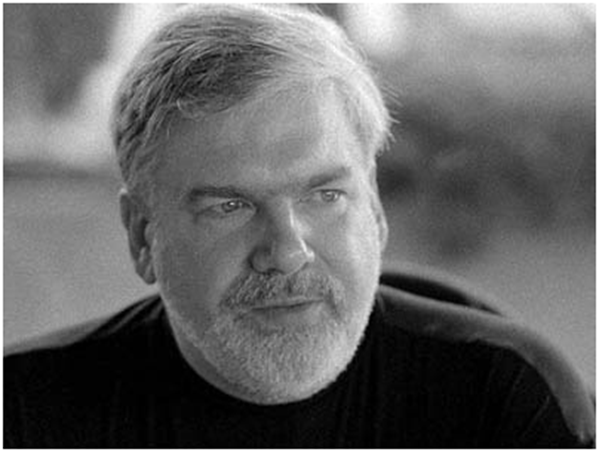
Photo from Weehawken, New Jersey, November 18, 2001
Many listeners considered him unrivaled at capturing the sound of acoustic instruments in a live setting-and his vast catalog of live recordings makes an unassailable argument for this viewpoint. Some engineers seem to operate like "hired guns," seldom working for the same musician twice. David Baker tended to work with the same musicians time and time again-or perhaps it would be more accurate to say that musicians, having once worked with David, tended to trust him with project after project. If there is a common thread in his recordings-other than extremely natural sound-it would have to be a sense of hushed attention: there is an active sense of listening that typifies his work. David Baker has become one of the masters of the art of recording. Many people can do it, but very few can do it with the dedication and distinction he has achieved consistently over the last three decades. A glance at his recordings reveals a phenomenal number of late-night favorites: Chico Hamilton: Still Sensitive, Paul Bley and Gary Peacock: Partners, Shirley Horn: Here's To Life, Astor Piazzolla: Rough Dancer and the Cyclical Night, Richie Beirach Trio: Trust, Anthony Davis: Hidden Voices, and, of course, pretty much anything by Medeski, Martin & Wood.
David Baker's death was unexpected (of an apparent heart attack). People who attended HE2004 had a chance to speak with him, and he was full of energy and musical enthusiasm about his recent work at Chad Kassem's Analogue Productions at Blue Heaven Studios, where he recorded the first Blues Masters at the Crossroads concert, among other projects. At the time of his death, he was in Rochester, N.Y., recording the Paul Smoker and Damon Short Quintet.
Sources: This text is made by a mix of articles by Mr. Mike Brown, Dr. Eugene Chadbourne, Mr. Wes Philips and Mr. Stephen Miller
Also read this:
http://news.acousticsounds.com/post.cfm/remembering-david-baker
http://news.acousticsounds.com/post.cfm/david-baker-in-heaven
https://www.stereophile.com/news/072604baker/index.html
Memorial Service Details
Date: Monday, August 16, 2004.
Time: From Noon until 10 PM
Location: Avatar Studios (441 West 53rd Street, between Ninth & Tenth)
Room: Studio A
A semi-formal service with family members was held for about an hour starting at Noon. The studio was open until 10 PM for people to stop by and pay their respects.
A private family funeral was held in Atlanta on July 24.
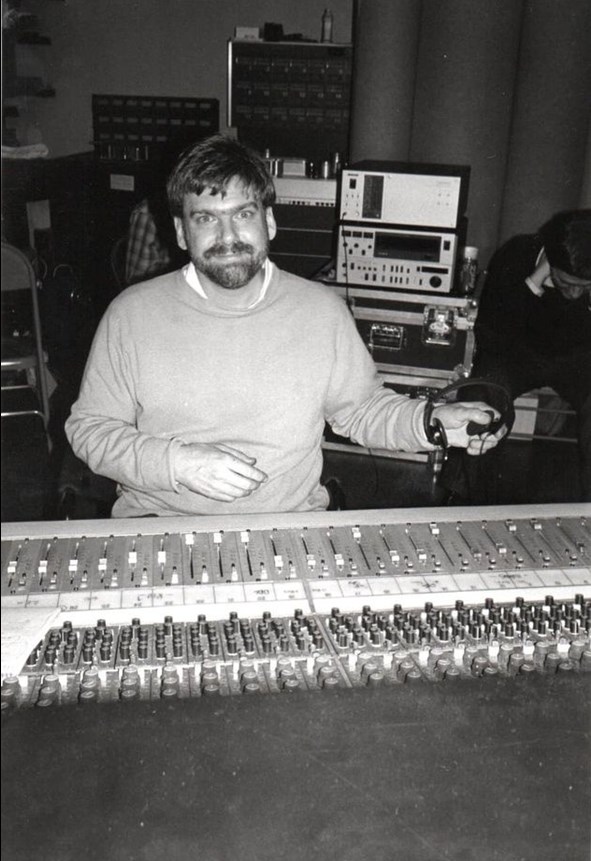
Sorcerer Studio New York, NY 1987 © Jean-Jacques Pussiau
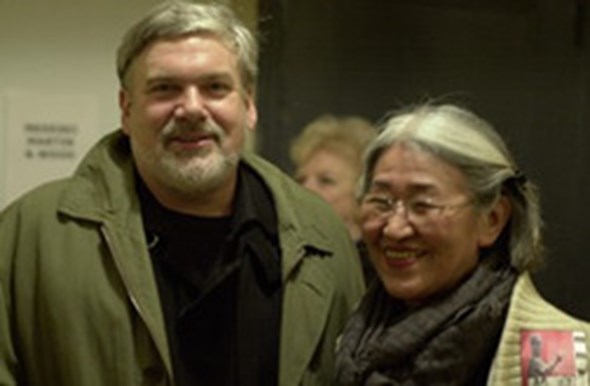
David & Kyoko Baker © Amulet Records
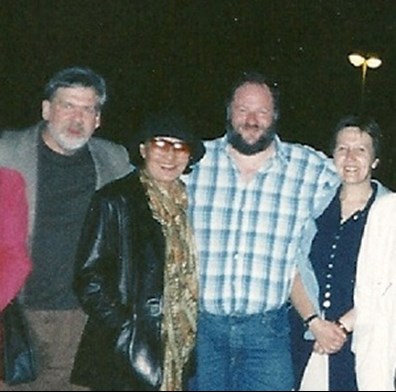
David & Kyoko Baker w/ Jos & Marijke Demol-Verkeyn,
Ostend 1998
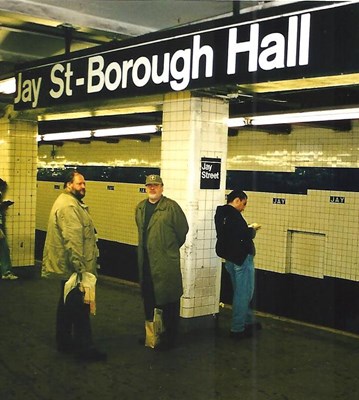
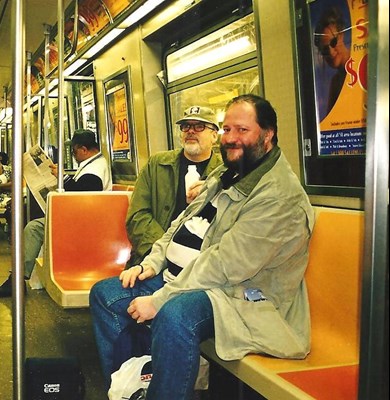
Jos Demol with David (NY metro, May 23, 1999) © Emile Clemens
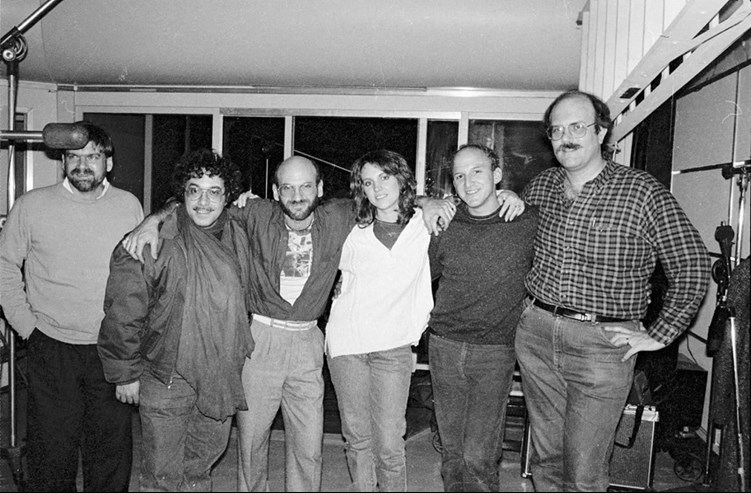
David Baker, Eddie Gomez, Dave Liebman, Caris Visentin Liebman, Adam Nussbaum, Jim McNeely - 01 1987
Studio Sorcerer © Jean-Jacques Pussiau
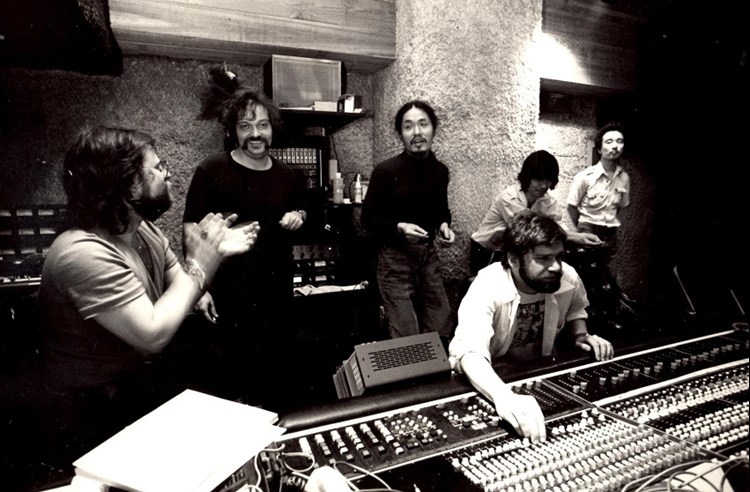
L to R Richie Beirach John Abercrombie Poo Kikuchi David Baker Yoshiaki Masuo © Jean-Jacques Pussiau
In case you LIKE us, please click here:

Foto © Leentje Arnouts
"WAGON JAZZ"
cycle d’interviews réalisées
par Georges Tonla Briquet

our partners:


Silvère Mansis
(10.9.1944 - 22.4.2018)
foto © Dirck Brysse

Rik Bevernage
(19.4.1954 - 6.3.2018)
foto © Stefe Jiroflée
Philippe Schoonbrood
(24.5.1957-30.5.2020)
foto © Dominique Houcmant
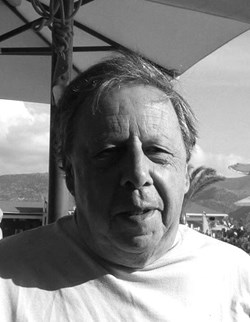
Claude Loxhay
(18/02/1947 – 02/11/2023)
foto © Marie Gilon
Special thanks to our photographers:
Petra Beckers
Ron Beenen
Annie Boedt
Klaas Boelen
Henning Bolte
Serge Braem
Cedric Craps
Christian Deblanc
Philippe De Cleen
Paul De Cloedt
Cindy De Kuyper
Koen Deleu
Ferdinand Dupuis-Panther
Anne Fishburn
Federico Garcia
Robert Hansenne
Serge Heimlich
Dominique Houcmant
Stefe Jiroflée
Herman Klaassen
Philippe Klein
Jos L. Knaepen
Tom Leentjes
Hugo Lefèvre
Jacky Lepage
Olivier Lestoquoit
Eric Malfait
Simas Martinonis
Nina Contini Melis
Anne Panther
Jean-Jacques Pussiau
Arnold Reyngoudt
Jean Schoubs
Willy Schuyten
Frank Tafuri
Jean-Pierre Tillaert
Tom Vanbesien
Jef Vandebroek
Geert Vandepoele
Guy Van de Poel
Cees van de Ven
Donata van de Ven
Harry van Kesteren
Geert Vanoverschelde
Roger Vantilt
Patrick Van Vlerken
Marie-Anne Ver Eecke
Karine Vergauwen
Frank Verlinden
Jan Vernieuwe
Anders Vranken
Didier Wagner
and to our writers:
Mischa Andriessen
Robin Arends
Marleen Arnouts
Werner Barth
José Bedeur
Henning Bolte
Erik Carrette
Danny De Bock
Denis Desassis
Pierre Dulieu
Ferdinand Dupuis-Panther
Federico Garcia
Paul Godderis
Stephen Godsall
Jean-Pierre Goffin
Claudy Jalet
Bernard Lefèvre
Mathilde Löffler
Claude Loxhay
Ieva Pakalniškytė
Anne Panther
Etienne Payen
Jacques Prouvost
Yves « JB » Tassin
Herman te Loo
Eric Therer
Georges Tonla Briquet
Henri Vandenberghe
Iwein Van Malderen
Jan Van Stichel
Olivier Verhelst



